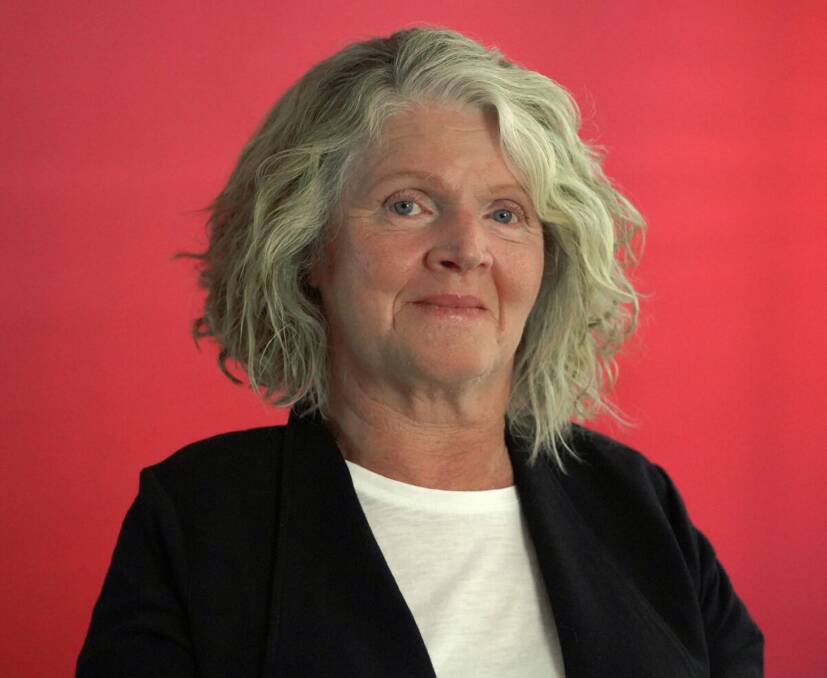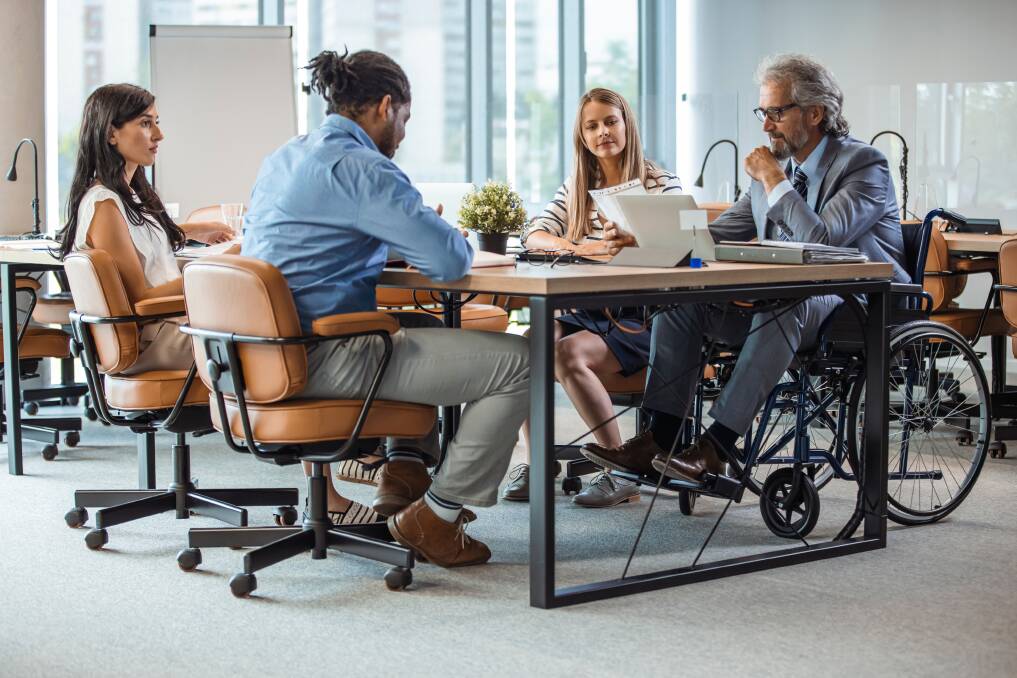Strength Through AdversityAdvertising Feature
Helping to make a real differenceAdvertising Feature

Galilee School will celebrate it's 25th Anniversary in 2024, continuing to lead the way in education for disengaged and vulnerable young people. Principal Tim McNevin said it was fantastic to be able to celebrate the ongoing support they had been able to provide. "We think it's worth celebrating this Canberran success story.
"Students go through personal transformation during their time at the school, and many face immense challenges in overcoming trauma and dysfunction," he said. "There are emotional highs and lows every day, but by the time they graduate with a Year 10 or Year 12 (ACT Senior Secondary) Certificate, there's an amazing sense of achievement."
Galilee School run a registered, independent secondary school designed specifically for young people in Years 7 to 12 who have struggled to get positive outcomes from mainstream schooling. They focus on inspiring young people to realise their full potential and find a sense of purpose. The school's success is underpinned by the wonderful team of teachers, youth workers, learning support assistants and support staff that devote so much to learning and development.

Despite facing challenges over the years including lack of funding and the 2003 bushfires which burnt down most of the Kambah campus, Tim said the team always came together, delivering the best results for students. "It's always a challenge, especially when you are providing a unique service for young people facing a whole host of personal difficulties.
"We support young people who are yet to thrive in mainstream education" he said. "I love my job, we've got an amazing team of teachers, youth workers, learning support assistants, and other support staff."
With two campuses, the rebuilt Kambah Pool Road campus and the other at Holder, the team of highly skilled educators, youth workers and support staff provide a supportive and flexible learning program tailored to each student's Individual Learning Plan.
The education program at Galilee School aligns with the Australian Curriculum and the requirements of the ACT Board of Senior Secondary Studies, and the school also provides training and job ready support to increase the education and employment opportunities for students transitioning to the workforce or to further education.
For more information on the programs and support that Galilee School is able to offer, visit www.commsatwork.org/services/community/galilee-school.
Commissioner takes up the fight to break down underlying causes of ableismAdvertising Feature

Australia's new Disability Discrimination Commissioner, Rosemary Kayess, says Australians need to reframe how they think about disability and address social structures that prevent people with disability from participating equally in society.
Commissioner Kayess, who began in the role on January 29 this year, said people with disability are too often viewed through the lens of care, treatment, protection, and service provision.
She believes there is a unique opportunity to transform the lives of people with disability following the Disability Royal Commission and the Independent Review into the NDIS.
Commissioner Kayess aims to work with government, stakeholders and the disability community to address ableism and ensure the rights of people with disability in all areas of life.
"People with disability are diverse, with a broad range of interests, dreams and lifestyles, and we should not be defined by a diagnosis or our need for care," Commissioner Kayess said. "People with disability continue to face the community's low expectations, and it is imperative that we change this."
Commissioner Kayess is a woman with disability who sustained a spinal cord injury in a car accident and uses a wheelchair.
Before becoming Commissioner, Ms Kayess was a senior academic with the Faculty of Law and the Social Policy Research Centre at the University of NSW.
She was a member of the United Nations drafting committee for the Convention on the Rights of Persons with Disabilities, is currently vice chair of the United Nations Committee on the Rights of Persons with Disabilities, and is a visiting professor at the Centre for Disability, Law and Policy at the University of Galway.
Commissioner Kayess noted the importance of recognising the social context of disability.
"When social structures are able to properly accommodate a person's impairment, you remove the disabling barriers to rights and participation," she said.
"Society has a responsibility to dismantle the underlying drivers of ableism. As with racism, sexism and ageism, this is essential to ensuring the rights and equality of all people with disability."
Commissioner Kayess said there is a unique opportunity to improve the lives of people with disability following the Royal Commission into Violence, Abuse, Neglect and Exploitation of People with Disability and the Independent Review into the NDIS.
"The present focus on improving Australia's social structures creates an opportunity to think differently about the rights of people with disability and the various types of change that are required to remove the disabling barriers to rights and participation," Commissioner Kayess said.
"I look forward to working with the disability community, and with the various sectors that interact with it, to address ableism and ensure the rights of people with disability are realised in all areas of life."
The Disability Discrimination Commissioner is a statutory position within the Australian Human Rights Commission, established under the Disability Discrimination Act 1992 (Cth).
The position is responsible for protecting and promoting the rights of Australians with disability and for driving the implementation of the Convention on the Rights of Persons with Disabilities in Australia.
Wheelie Challenge calls for CEOs to roll up for wheelchair experienceAdvertising Feature

Australians living with disability continue to have higher rates of unemployment than people without disability.
Shockingly, two in five people with disability who have experienced discrimination in the workplace report their employer as the likely source, followed by their work colleagues.
The CEO Wheelie Challenge, which will be held this year on August 30, seeks to spark a broader conversation about fostering more diverse, inclusive, and accessible workplace environments for people with disabilities.
While people with disability participate actively in all aspects of Australian life, they are more likely to face challenges than people without disability, such as poorer general health and higher levels of psychological distress, and their rates of participation in various life areas are generally lower.
In fact, people with disability continue to have lower rates of labour force participation and employment and higher rates of unemployment than people without disability.
Embracing accessibility in the workplace not only supports a diverse pool of employees and customers but also fosters a positive workplace culture and demonstrates a commitment to workplace equality.
The CEO Wheelie Challenge is held by Sporting Wheelies, part of disability support and advocacy organisation Spinal Life Australia, to raise vital funds to support people with disability to stay active and healthy and connect with others.
Sporting Wheelies and parent organisation Spinal Life Australia are calling upon CEOs, executives, and leaders nationwide to register for the CEO Wheelie Challenge on August 30 to experience the daily challenges faced by wheelchair users.
Sporting Wheelies chief operating officer Dane Cross said the event calls upon leaders to evaluate their workplace's accessibility and show support for people with disabilities.
"Participants will see first-hand how simple things like navigating through the office or accessing equipment can be a challenge for someone with a disability," Mr Cross said.
"By spending a day in a wheelchair, leaders will gain a new understanding of the challenges faced by people with disability in the workplace and help create a more inclusive workplace culture."
In doing so, leaders can understand the importance of making changes to their workplace that will benefit everyone.
"This provides an opportunity for participants to reflect on how welcoming and accessible their workplace really is ... or isn't," Mr Cross said.
"We need inspirational CEOs to lead by example and show their communities they support the needs of people with disabilities. At the same time, accessing a talent pool that they may have never considered."
To learn more about the CEO Wheelie Challenge and register to participate, visit www.sportingwheelies.org.au/ceochallenge.


